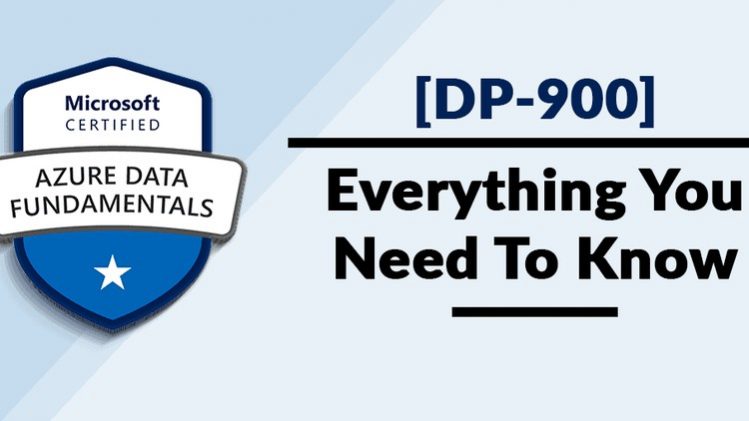
Microsoft Certified: Azure Data Fundamentals
The exam is designed to prepare the candidate for other Azure role-based certifications like Azure Database Administrator
Describe core data concepts (15-20%)
Describe how to work with relational data on Azure (25-30%)
Describe how to work with non-relational data on Azure (25-30%)
Describe an analytics workload on Azure (25-30%)
*** Updated 8/22 ***
New questions.
*** Updated 7/22 ***
Objective:
(Microsoft Certified: Azure Data Fundamentals). The exam is designed to prepare the candidate for other Azure role-based certifications like Azure Database Administrator Associate or Azure Data Engineer Associate.
Skills Measured:
- Describe core data concepts (25–30%)
- Identify considerations for relational data on Azure (20–25%)
- Describe considerations for working with non-relational data on Azure (15–20%)
- Describe an analytics workload on Azure (25–30%)
You will learn the fundamentals of database concepts in a cloud environment, get basic skilling in cloud data services, and build your foundational knowledge of cloud data services within Microsoft Azure. You will identify and describe core data concepts such as relational, non-relational, big data, and analytics, and explore how this technology is implemented with Microsoft Azure. You will explore the roles, tasks, and responsibilities in the world of data.
This is the first course in a program of five courses to help prepare you to take the Exam DP-900: Microsoft Azure Data Fundamentals. so that you can demonstrate that you have a foundational knowledge of the core database concepts in a cloud environment. This course is ideal for IT professionals who want to learn the fundamentals of database concepts in a cloud environment, get basic skilling in cloud data services, and build their foundational knowledge of cloud data services within Microsoft Azure with a view to taking up roles as Data Engineers and Database Administrators. It is also suitable for working database professionals looking for additional skills or credentials to showcase expertise in a cloud environment and IT professionals looking to specialize in the specific area of Azure data. To be successful in this course, you need to have basic computer literacy and proficiency in the English language. Successful Azure Data Fundamentals students start with some basic awareness of computing and Internet concepts, and an interest in extracting insights from data. It is an advantage to have experience using a web browser, familiarity with basic data-related concepts, such as working with tables of data in a spreadsheet, and visualizing data using charts.
- Describe how to work with relational data on Azure
- Describe core data concepts
- Describe how to work with non-relational data on Azure
- Describe an analytics workload on Azure
- Describe core data concept
- Identify how data is defined and stored
- Describe data job roles
- Describe and differentiate batch and streaming data
- Identify characteristics of relational and non-relational data
- Describe the characteristics of relational data
- Describe types of non-relational and NoSQL databases
- Define types of non-relational data






